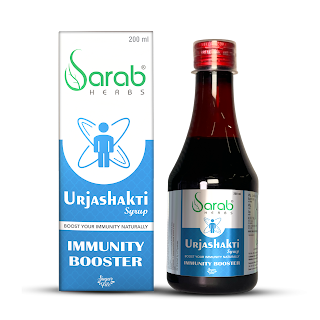Tulsi Seeds: The Ultimate Guide to Their Benefits, Uses, and Cultivation
- Sarab Herbs
- Sep 3, 2024
- 3 min read
Tulsi, also known as Holy Basil (Ocimum sanctum), is revered in many cultures for its therapeutic and spiritual significance. While the leaves are widely celebrated, Tulsi seeds are also a powerhouse of health benefits, yet they remain less known. This article delves into the world of Tulsi seeds, exploring their benefits, uses, and how to cultivate them. Whether you're interested in their health benefits or looking to grow your own Tulsi plants, this guide will provide you with all the information you need.
Tulsi seeds are the small, black seeds harvested from the Tulsi plant. These seeds are rich in nutrients and have been used traditionally in various cultures for their medicinal properties. The Tulsi plant itself is a sacred herb in Hinduism, often used in religious rituals and as a natural remedy for various ailments.
Nutritional Profile of Tulsi Seeds
Tulsi seeds are packed with essential nutrients, making them a valuable addition to your diet. Here’s a breakdown of their nutritional profile:
Omega-3 Fatty Acids: Essential for heart health and reducing inflammation.
Antioxidants: Help combat oxidative stress and protect against cellular damage.
Fiber: Aids in digestion and helps maintain healthy bowel movements.
Vitamins: Rich in vitamin A, vitamin C, and various B vitamins.
Minerals: Includes calcium, magnesium, potassium, and iron.
Health Benefits of Tulsi Seeds
Supports Digestive Health: The high fiber content in Tulsi seeds helps improve digestion and prevent constipation. They can also aid in detoxifying the digestive tract.
Boosts Immunity: The antioxidants and essential nutrients in Tulsi seeds strengthen the immune system, helping the body fight off infections and illnesses.
Improves Skin Health: Regular consumption of Tulsi seeds can help maintain healthy skin. They can also be used in face masks to reduce acne and improve complexion.
Regulates Blood Sugar Levels: Tulsi seeds have been shown to help regulate blood sugar levels, making them beneficial for people with diabetes.
Promotes Heart Health: The omega-3 fatty acids and antioxidants in Tulsi seeds support cardiovascular health by reducing cholesterol levels and preventing heart disease.
Enhances Mental Clarity: Tulsi seeds are known to have adaptogenic properties that help in reducing stress and improving mental clarity.
How to Incorporate Tulsi Seeds into Your Diet
Smoothies: Add a tablespoon of Tulsi seeds to your smoothie for a nutrient boost.
Salads: Sprinkle Tulsi seeds on top of salads to add a crunchy texture.
Soups and Stews: Mix Tulsi seeds into soups and stews for added nutrition.
Baked Goods: Incorporate Tulsi seeds into bread, muffins, or cookies.
Puddings and Yogurts: Tulsi seeds can be added to puddings or yogurt for an extra dose of fiber and nutrients.
Common Issues and Solutions
Pests: Tulsi plants can attract pests like aphids and spider mites. Use organic insecticides or neem oil to control infestations.
Disease: Watch out for fungal infections. Ensure good air circulation and avoid overwatering to prevent diseases.
Growth: If your Tulsi plant isn’t growing well, check for adequate sunlight and proper soil drainage.
BOTTOM LINE
Tulsi seeds are a versatile and nutrient-rich addition to your diet, offering numerous health benefits. Whether you're incorporating them into your meals or growing them in your garden, Tulsi seeds can enhance your overall well-being. For those interested in high-quality Tulsi products and more information on holistic health, SarabHerbs® offers a range of Tulsi-based products to meet your needs.











I struggled with infertility for several years, and it was one of the most difficult journeys of my life. I tried different treatments and medications, but nothing seemed to bring the results I hoped for. The emotional and physical toll was overwhelming, and at times I felt like giving up.Out of hope and curiosity, I decided to try the herbal treatment program from NaturePath Herbal Clinic. Honestly, I was skeptical in the beginning but within a few months of starting the program, I began to notice real changes in my health and overall well-being. My body felt more balanced, my energy levels improved, and I could tell that something was working differently this time.After completing the treatment, my dream finally…